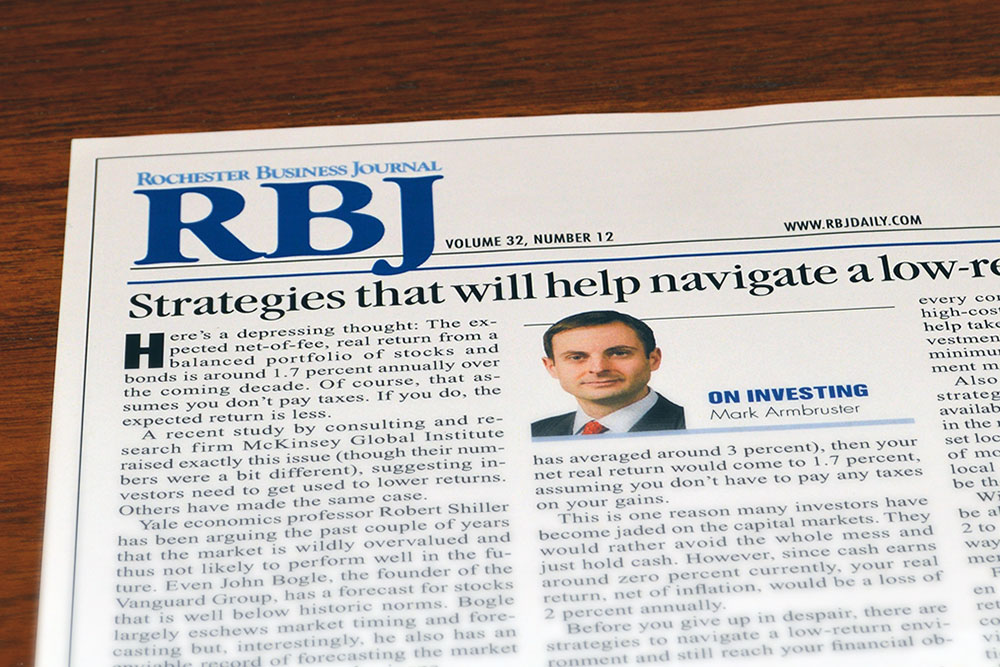Rochester Business Journal
July 24 2015
Mark Armbruster
On Investing
Imagine: You are ill and go to your doctor for help. Unbeknownst to you, your doctor is on the payroll of a pharmaceutical firm, and he gets a cut of all the sales he makes of a particular drug. You describe your symptoms, and the doctor prescribes medication.
It happens to be the same medication that he gets a commission for. The medication won’t quite kill you, but it won’t help you either.
While this sounds like an unlikely scenario, it is precisely what happens every day in the investment industry. The Department of Labor, with backing from the White House, recently proposed a rule that would address at least part of this problem. The rule would make all those giving investment advice to retirement plans (employer-sponsored plans as well as individual retirement accounts) fiduciaries who would be legally required to act in the best interest of their clients.

It may seem obvious that investment professionals would be required to act in the best interest of their clients, but that is not always the case. Registered investment advisers are registered with and overseen by the Securities and Exchange Commission, and are required to live up to a fiduciary standard. Brokers and insurance agents, on the other hand, are held to a lesser standard of “suitability” that does not require them to act solely in the interest of their clients. Making things even more confusing, brokers often refer to themselves as financial advisers or investment advisers, but that does not mean they are always acting in a fiduciary capacity.
What this means from a practical perspective is that your broker, faced with recommending two similar investment offerings, will often choose the one that maximizes his compensation, which likely will result in reduced returns for you. While non-fiduciary investment professionals may argue that they are able to serve two masters, that is to simultaneously earn high fees for themselves and also provide solid returns to their clients, the evidence is not supportive.

